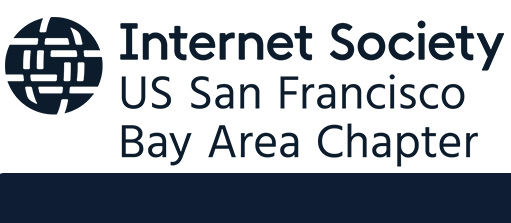The 26 Words that Built the Internet: Section 230
The Future of Section 230 and its Impact on Innovation, Free Speech, and Democracy
UPDATE: Webinar recording
Please join the SF Bay Area Chapter of the Internet Society (ISOC) on Monday 8 March 2021 for a tech policy webinar on the topic of Section 230 of the Communications Decency Act (CDA), the 26 words that created the Internet 25 years ago this month. 47 USC Section 230 is the law that in many cases protects Internet users, social media, and other Internet companies from legal liability for the speech of third-parties that they repeat or amply in their posts or emails or on their websites and online platforms. The law has fueled the growth of the Internet and generated billions of dollars of value from an online economy, even creating entirely new categories of business models, often involving user generated content. Section 230 has given US tech companies a significant legal advantage over their competition in foreign countries that do not provide such legal immunities for the online speech of third-parties.
While Silicon Valley was built on the protections afforded by Section 230, there exist many calls to reform or repeal the law, which has also played a role in the spread of online disinformation and other dangerous content that can cause harm offline. Several legislative proposals have recently been made in Congress to amend Section 230, including a proposal from several Democratic Senators that would curtail the immunity for paid content and wrongful-death actions and aims to enforce antitrust and civil rights laws online. Meanwhile, some Republicans call for repealing Section 230 altogether, because of grievances over content moderation on tech companies’ platforms. Unsurprisingly, civil liberties groups urge caution on Section 230 reform due to the law’s promotion of technological innovation and freedom of expression and the potential for reform to open a pandora’s box of unintended consequences.
A panel of distinguished legal and policy experts will delve into Section 230 including what, if anything, should be done to reform the law. The panel will also discuss the relationship between Section 230 and the free speech guarantees of the First Amendment, as well as thorny questions about Section 230’s impact on democracy and potential to enable violence. How can Internet companies be assured of their ability to innovate and avoid liability for others’ speech without the protections provided by Section 230? How can society discourage the rampant spread of disinformation and harmful conspiracy theories without some reform to the law’s liability-shielding incentive structure? What are the circumstances in which individual citizens and tech companies should be responsible for the harmful speech of others, if ever? The webinar’s panel of experts will explore these issues and more, as well as take live questions from webinar participants.
RSVP today via the link below to reserve your spot in the SF Bay Area ISOC chapter’s tech policy webinar on 8 March 2021.
Moderator: Robin Gross, SF Bay Area ISOC Board of Directors and Policy Chair
Panelists:
- Elizabeth Banker, Deputy General Counsel, Internet Association
- Andrew Bridges, Partner, Fenwick & West
- Mike Godwin, Board of Trustees, The Internet Society
- Eric Goldman, Associate Dean for Research and Professor, Santa Clara University School of Law / Co-Director, High Tech Law Institute, Santa Clara University School of Law
Webinar: Monday, 8 March 3:00 – 4:30pm (PT)
Register/RSVP: https://us02web.zoom.us/webinar/register/WN_e6eb9CRqSxq4KluZ2aoyNA
 Internet Society – San Francisco Bay Area Chapter
Internet Society – San Francisco Bay Area Chapter Internet Society – San Francisco Bay Area Chapter
Internet Society – San Francisco Bay Area Chapter